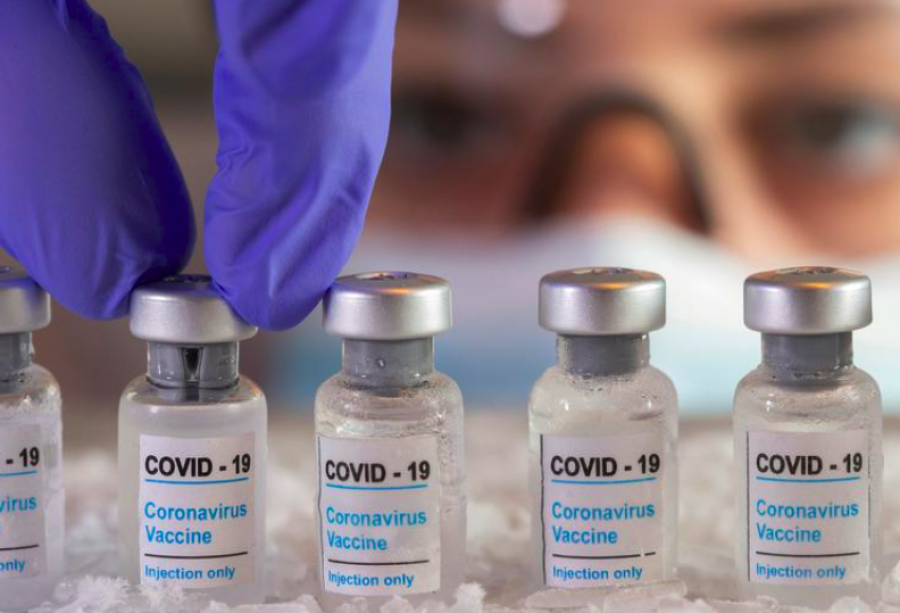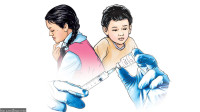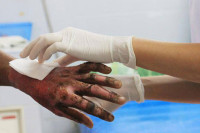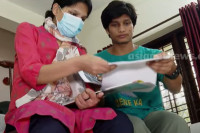Health
Sinopharm’s vaccine yet to get approval in Nepal
China has decided to provide 300,000 doses in grant. But officials say licence is must for importing the jabs.
Arjun Poudel
China has decided to provide a coronavirus vaccine to Nepal but it is still unclear how long it will take for the consignment to arrive, as the product is yet to get emergency use approval in the country.
The Chinese Embassy in Kathmandu announced on Sunday that the Chinese government has decided to provide 300,000 doses of the vaccine produced by Sinopharm in grant as requested by Nepal.
“For the vaccine to be brought in Nepal, it must get emergency use approval from the concerned agency,” Dr Shyam Raj Upreti, coordinator of the Covid-19 vaccine advisory committee, told the Post. “Even to accept the jabs in grant or gift, it must get emergency use approval.”
Two vaccines from India and one from China—the BBIBP-CorV developed by Sinopharm—applied for emergency use approval in Nepal on January 13.
Two other vaccines—Covishield, developed by the University of Oxford and pharmaceutical giant AstraZeneca and produced by the Serum Institute of India, and Covaxin, indigenously developed in India by Bharat Biotech—had applied for emergency use approval.
However, the Department of Drug Administration gave the emergency use licence only to Covishield on January 15 and directed the Bharat Biotech and Sinopharm to furnish necessary documents and third-phase data.
“We have demanded some necessary documents from the company with their suppliers, who have applied to us for emergency use approval in Nepal,” Bharat Bhattarai, director general at the Department of Drug Administration, told the Post. “We will give approval if all their documents and data are okay. But they have not submitted the documents we asked for.”
Emergency use authorisation is granted for some drugs and vaccines by authorities such as the US Food and Drug Administration during a declared emergency when officials can make a judgment that the drug is worth releasing—even without all the evidence that would fully establish its effectiveness and safety. Such a decision is taken when there’s enough evidence to suggest that patients have benefited from the drug/vaccine. In Nepal the department gives such approval.
The Chinese Embassy in Kathmandu stated that it has been coordinating with relevant Nepali authorities on the registration of the vaccine for emergency use and its delivery.
The embassy would like to deliver the vaccines to Nepal at the earliest so as to help the country in its Covid-19 battle, it added.
BBIBP-CorV inactivated Covid-19 vaccine got conditional marketing approval in China. The Chinese embassy in Kathmandu claimed that more than 24 million doses have been administered by January 31 and after two doses of inoculation, the vaccine shows 79.34 percent efficacy against Covid-19.
“The safety and effectiveness of the vaccine has surpassed the marketing standards of the World Health Organization and received wide recognition by other countries,” the embassy claimed. “So far the vaccine has got licences for marketing or approval for emergency use in 13 countries including Pakistan, the United Arab Emirates, Egypt and Hungary.”
Officials in Nepal, however, said they would discuss the matter once the vaccine gets emergency approval in the country.
“Providing emergency use approval for vaccines and receiving grant assistance are two different things,” Dr Jageshwor Gautam, spokesperson for the Ministry of Health and Population, told the Post. “We will receive the vaccine only after the drug regulatory body of our government provides the emergency use approval.”
On 30 December 2020, Sinopharm announced the vaccine's efficacy was 79.34 percent, which was lower than the 86 percent announced by the United Arab Emirates on December 9. The UAE had based its results on an interim analysis of Phase III trials conducted from July.
A report published in Lancet says the inactivated SARS-CoV-2 vaccine, BBIBP-CorV, is safe and well tolerated at all tested doses in two age groups. Humoral responses against SARS-CoV-2 were induced in all vaccine recipients on day 42. Two-dose immunisation with 4 μg vaccine on days 0 and 21 or days 0 and 28 achieved higher neutralising antibody titres than the single 8 μg dose or 4 μg dose on days 0 and 14.
Gautam said that the ministry has directed the department to see if emergency use approval licence can be given to the vaccine produced by Sinopharm.
Meanwhile, the Health Ministry said it has decided to ask all health workers, having identity cards and licence to serve to reach nearby immunisation centres to receive the jabs.
Earlier, the ministry had prepared the list of health workers deployed on the front line and decided to inoculate them.
“We have decided to immunise all health workers, whether they are practising or not,” said Gautam. “But they should show their identity card and licence taken from respective councils.”
The Health Ministry aims to inoculate 430,000 frontline workers including health workers, supporting staff, sanitation workers, female community health volunteers, people taking refuge in old age homes and prisoners in the first phase.




 11.12°C Kathmandu
11.12°C Kathmandu













%20(1).jpg&w=300&height=200)
